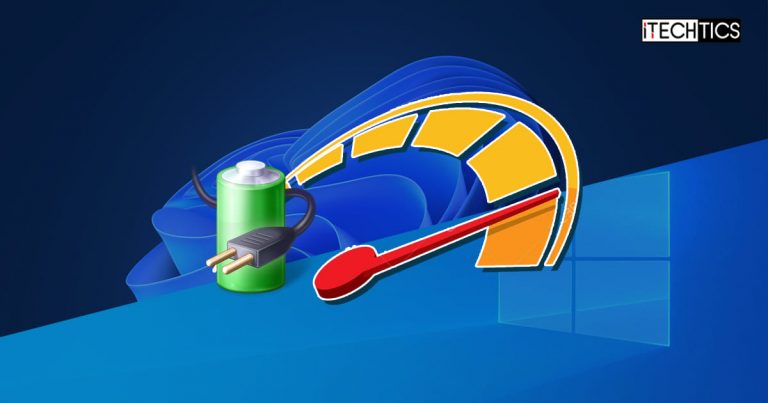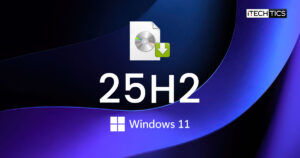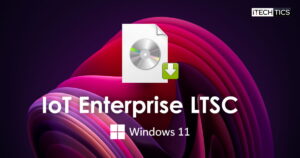The Ultimate Performance Power Plan, also known as Ultimate Performance mode, is a power-to-performance configuration in Windows that allows you to push your hardware to its limits. It is designed for high-end PCs that can hold up their end, while Windows keeps running them at maximum capacity.
Initially introduced in Windows 10 Professional for Workstations, the Ultimate Performance Power Plan was then introduced with Windows 10 April 2018 update. This feature is by default built into Windows, but has not been made available for devices with a battery (i.e. laptops). This is because the power consumption would be much greater and may not be worth the enhanced performance gains.
This article illustrates how to enable the feature on a Windows 11 or 10 PC, even if it is disabled for your device.
Table of Contents
What is Ultimate Performance Mode in Windows
Windows usually comes with 3 power modes: Balanced, Best Performance, and Best Power Efficiency. Ultimate Performance is a fourth power plan, which is a step further than “Best Performance.”
Ultimate Performance configures certain parameters of your computer that push the hardware to consume more power to achieve greater performance gains. The following changes are made to your computer:
- Hard disks are always running.
- Java timer frequency is adjusted for maximum throughput.
- Wireless adapter is configured to ensure maximum performance.
- Hibernation and Sleep mode is turned off.
- Processor’s maximum capacity is configured to 100%.
- Video playback quality is optimized.
What Ultimate Performance does is minimize the micro-latencies, which is the time it takes for your system to find out that the hardware needs more power and the time that power is provided. This time is very small (in milliseconds), but may make a significant difference in performing time-critical tasks.
If you want to boost your system’s hardware, let us show you how.
How to Enable Ultimate Performance Mode
Enabling the Ultimate Performance plan can be simple, provided you have the option visible in the Control Panel. Regardless, only a few additional steps need to be taken if the device isn’t available to add or enable it (in the case of a battery-powered PC).
Conventionally, perform the steps below to enable the Ultimate Performance Power Plan:
- Type in powercfg.cpl in Run to open the Power Options in the Control Panel.
- Now click Show additional plans to expand it.

- Here, you shall see the “Ultimate Performance” plan. If it is grayed out, click “Change settings that are currently unavailable.”

- Now click Ultimate Performance to select it.
Ultimate Performance mode will now be enabled. However, if you do not see the option, launch either the Command Prompt or Windows PowerShell and paste the following command:
powercfg -duplicatescheme e9a42b02-d5df-448d-aa00-03f14749eb61

After performing this task, you can select Ultimate Performance from the Power Options page in the Control Panel as discussed above.
Note: Windows 11 lets you manage your power plans through the Settings app. This can be managed from Settings app >> System >> Power and Battery >> Power Mode. However, while the Ultimate Performance mode is selected, Windows 11 disables managing your power plans from the app. This can only be changed from the Control Panel.
How to Disable Ultimate Performance Mode
In case you need to disable the Ultimate Performance power plan, you can simply select another power plan from the Power Options page in the Control Panel (Run >> powercfg.cpl).
However, if you want to remove the option entirely, perform these steps:
- Type in powercfg.cpl in Run to open the Power Options in the Control Panel.
- Click “Change settings that are currently unavailable.”
- Now select another power plan from the list (making Ultimate Performance available for changes), and then click Change plan settings in front of Ultimate Performance.

- On the next page, click Delete this plan.

- When asked for a confirmation, click Ok.

The Ultimate Performance Power Plan will now no longer exist on your computer.
Continuously running your PC on the Ultimate Performance power plan also has its downsides. So how would you know whether it is right for you?
Should You Enable Ultimate Performance Mode
The Ultimate Performance mode consumes a lot of energy, which eventually adds to your power consumption and thus, the electricity costs. Therefore, you must remember that using this power plan will cost you.
Considering that if you see negligible performance gains on your PC after enabling the Ultimate Performance mode, it may not be worth the cost.
With these considerations, it can be concluded that you should only enable the Ultimate Performance power plan if you see a significant performance difference, and you are ready to bear the overhead costs. Of course, we suggest that it should only be enabled when doing heavy tasks on your PC and then switched back to your usual power plan.
Closing Words
We do not recommend the Ultimate Performance Power Plan all the time, especially on battery-operated devices (laptops). This is because laptops have two main advantages over desktop computers: portability and backup power.
With Ultimate Performance always selected, it is bound to drain your battery much faster than your PC, reducing your backup timing and possibly reducing the productivity you were hoping for.





